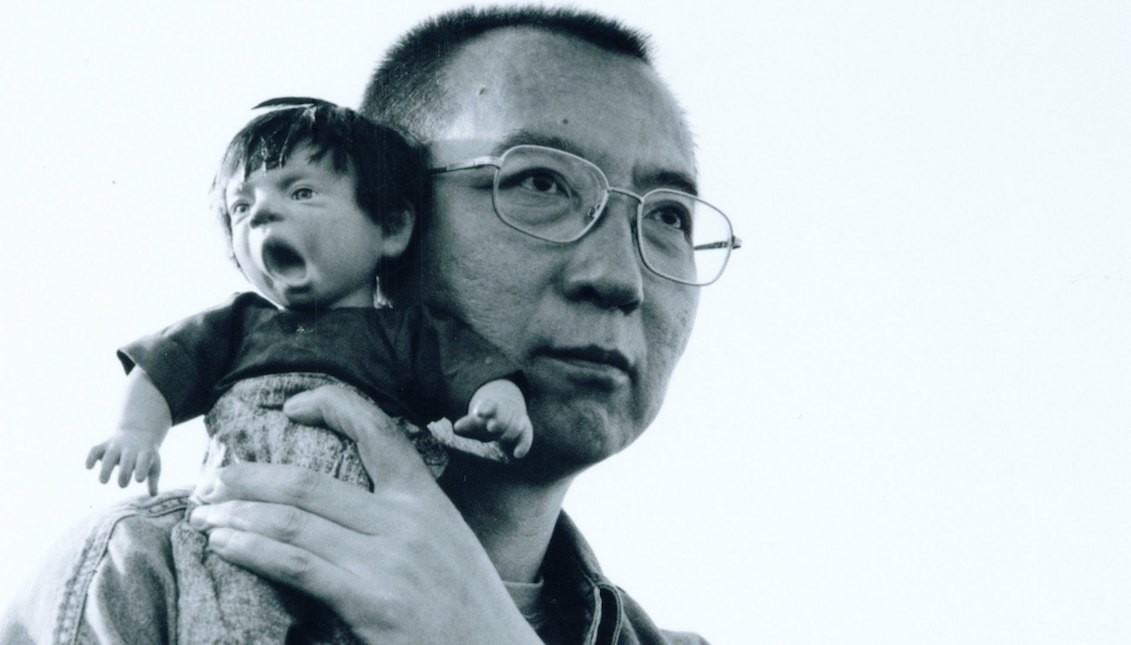
The voice of freedom dies in China
Liu Xiaobo, Nobel Peace Prize winner in 2010, suffered from an aggressive cancer at age 61 while in prison.
On Thursday, the Shenyang Justice Department announced the death of Xiaobo, due to a liver cancer diagnosed at an advanced stage during the month of May in prison, where he served an 11-year sentence for "subversion," reported the Spanish newspaper El País.
According to the Chinese government, the cancer would have been diagnosed at an intractable stage and rejected the possibility of transferring him to Germany or the United States to get a better treatment. In this way, Xiaobo received death without an ounce of freedom.
"After multiple treatments, Liu Xiaobo's condition continued to deteriorate. On July 10 he went into intensive care and he died on July 13 due to a widespread organ failure after failed attempts to save him," the Chinese government statement said.
But his isolation, the impossibility of his wife (poet and dissident sentenced to house arrest) to visit him and the late attendance to his condition, proves that for China, Xiaobo’s cancer was simply doing them a favor.
And it is that the voice and presence of Xiaobo represented an ideal and an unavoidable commitment to freedom and democracy.
Born in 1955 in Jilin Province, in an intellectual family, he was always an opponent of the Communist Party that dominated his home politics. During his adolescence he had to move with his family to the Inner Mongolia region so that his father would "learn from the proletariat" and abandon bourgeois life as a measure of the Mao Zedong Cultural Revolution.
After Mao's death in 1976, Xiaobo returned to Jilin to study literature and enter the academic life in Beijing. It was then that his texts began to resonate in the rooms where the fate of the new government was discussed, and in the whole world. In 1989 he joined the protests against the regime and in favor of democracy in Tiananmen Square in Beijing, and it was his mediation during the vigil what prevented many more deaths of young students.
RELATED CONTENT
"We can not allow a bloodshed. We must go," a survivor recalled and shared to Efe.
The experience was so traumatic, that Xiaobo turned to peaceful activism, despite being condemned for his involvement in the protests. It was in 1996 when he was condemned again to a labor reeducation field, where he met his second wife, the poet Liu Xia, who also militated against the Chinese regime.
His last conviction was received in 2009, because of his literary activism as a writer and contributor to the so-called Charter 08, a manifesto signed by 303 intellectuals and human rights activists that promoted political reform and democratization in the People's Republic of China. It was published on December 10, 2008, when the 60th anniversary of the Universal Declaration of Human Rights was being celebrated, and emulated through its name the style of Czechoslovakian Charter 77, which was against the socialist regime.
It was the Charter 08 that earned him the Nobel Peace Prize in 2010, which he was unable to receive as he was arrested and sentenced in 2009 to 11 years in prison for "inciting subversion." In prison, the intellectual wept and dedicated his achievement to the "martyrs of Tiananmen", whom he would unite without having ever deserted his struggle and ideal of life.
Xiaobo thus became the second recipient of the Nobel Prize behind bars, after the pacifist Carl von Ossietzky, imprisoned by Nazi Germany.
The world is left without another voice of freedom, without another hero, in a historical circumstance where intellectuals like Liu Xiaobo are more necessary than ever.











LEAVE A COMMENT: